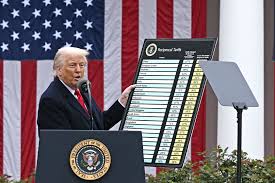EU imports and exports of goods decreased in Q3 2023

Brussels: The value of EU exports and imports in goods continues to decline – exports have been decreasing for the third consecutive quarter, and imports for the fourth consecutive quarter.
In the third quarter of 2023, EU imports and exports decreased by 4.6% and 1.2%, respectively, compared to the previous quarter, leading to a surplus in the EU’s trade balance of around €18 billion. The last time a surplus was observed was in the third quarter of 2021 (€6.9 billion).
The decrease in extra-EU imports in the third quarter of 2023 was mainly related to falling imports of other manufactured goods (-€6.6 billion compared to the second quarter of 2023), machinery and vehicles (-€6.2 billion) and energy (-€4.7 billion). Exports decreased also for the group of machinery and vehicles (-€6.9 billion) and other manufactured goods (-€2.7 billion), while energy and chemicals all increased respectively by €3.4 billion and by €3.2 billion.
In the third quarter of 2023, the EU had a trade surplus of €15.6 billion for food, drinks and tobacco, €50.4 billion for chemicals and €49.6 billion for machinery and vehicles. The cumulated value of these surpluses exceeded the cumulated value of the deficits registered for the other sectors (-€93.9 billion for energy, -€5.9 billion for raw materials) and -€1.8 billion for other manufactured goods).
The balance of trade deficit in the energy sector has been falling steadily since the third quarter of 2022, from a record deficit of -€193.8 billion to -€93.9 billion in the third quarter of 2023. Declining prices for energy products were the main reason.
Between the fourth quarter of 2021 and the first quarter of 2023, the opposite happened when increasing prices caused a large trade deficit for energy that outweighed surpluses in other product groups.





